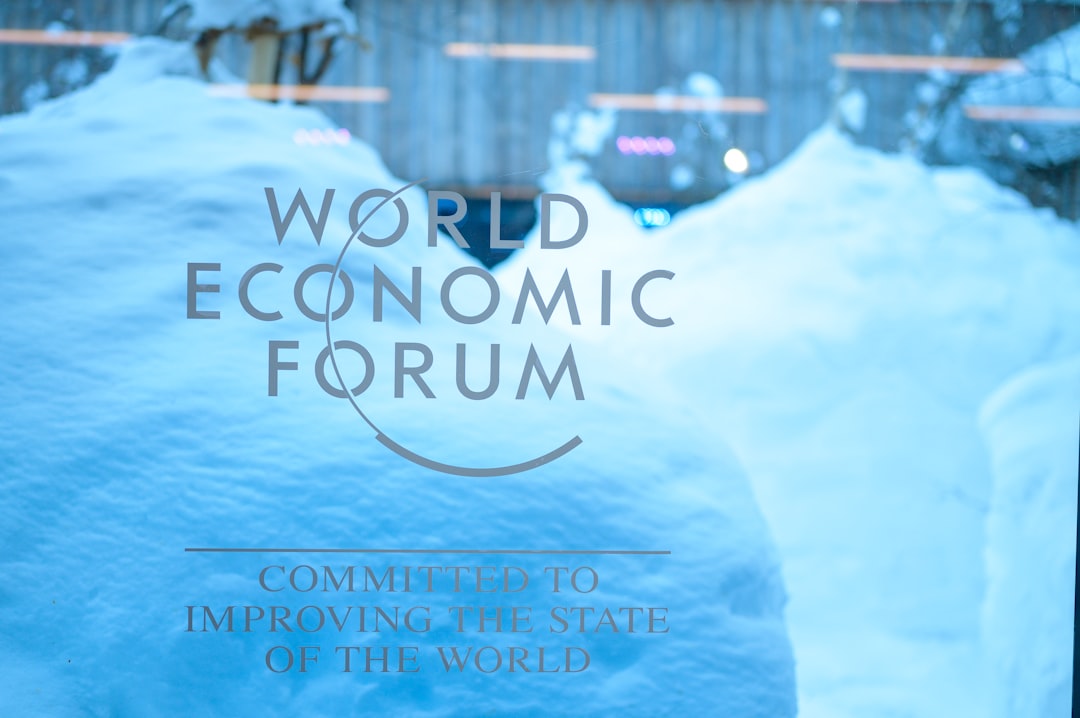Davos: high altitude, low impact
The World Economic Forum has become less about finding real solutions and more about being seen to be finding them

In the frost-kissed town of Davos, where the world’s glitterati converged this week for the 54th annual World Economic Forum under the guise of shaping the world's future, something sounded thinner than the altitude: It was the air of relevance, of touch with the terra firma where the rest of us reside.
I’m no stranger to global convenings, and I’ve attended the WEF several times as part of the diplomatic press corps traveling with different Secretaries of State over the years. Frankly, the best part was shopping in town for Swiss chocolate and cowbells. That’s because Davos has become less of a “forum” and more of a festival, with FOMO being the real draw: The price of admission, the color of your badge, and the invites to swanky parties all speak louder than the panels themselves.
The forum has always been a curious blend of intellectual masturbation and disconnect from ground truths. We’ve all heard the long-running jokes pointing out how billionaires and politicians arrive in private jets to discuss carbon footprints. Now they speak of AI's societal impacts while their companies quietly lobby against regulations that could curb their techno-empires.
Back in the real world, people grapple with immediate issues like rising living costs, job insecurity, migration and the tangible impacts of climate change. The Davos set seems more attuned to theoretical risks than to the lived experiences of the majority.
This year’s gathering unfolded against a backdrop of multiplying global crises - wars in Gaza and Ukraine, economic upheavals, and the specter of a Trumpian return. Yet, amidst this turmoil, the reports from Davos, and there were quite a lot of them, read like an echo chamber of platitudes on these issues, reinforcing existing beliefs on “megatrends” rather than challenging them. Yes, it's a venue where leaders, like Ukraine's President Zelensky, were able to seek support amid ongoing conflicts, and where discussions about U.S.-China dynamics take center stage. But this year the forum was criticized for its lack of focus on pressing issues like rising antisemitism, an issue which would have at least reflected at least a morsel of connection between the forum's agenda and the world's pulse.
Semafor’s Ben Smith offers a great take on Davos’ shift in focus, which he partly attributed to pressures from various directions. Some progressive business leaders have voiced concerns about the forum leaning too far left, prompting calls for a more centrist dialogue. The Gulf monarchies, weary of criticism of fossil fuels, have hinted at their waning patience, subtly reminding the forum of their financial clout. Others are preemptively sucking up to Trump in the event he wins in November. These undercurrents have led to a noticeable dilution in the forum's language, with terms like "ESG" and "diversity" becoming less prominent in the official program. As Ben aptly put it, “this year’s motto could have been... 'never mind.'”
Once the harbinger of globalism and a hub for the elite Western "Davos Man" idealized by Samuel Huntington in 2004, Davos now seems more of a caricature of itself in an era of resurgent nationalism. The forum's transformation from a gathering focusing on economic and political issues has ballooned to over 200 sessions spanning vast topic areas under the nebulous theme of “rebuilding trust.”
Ostensibly the theme was chosen to mend the frayed fabric of global cooperation, but that is a paradox in a world increasingly disillusioned with leaders’ ability to address pressing issues. Though, a surprising source of optimism about Davos' potential to effect change has emerged from Gen Z.
Despite this, the allure of Davos persists. To be fair, it remains a unique gathering point for global decision-makers, a place where off-the-record conversations and informal meetings often yield more substantial outcomes than the formal agenda. Yet there's a sense that these polite conversations among the “brightest minds,” while important, often skirt around the immediate, drastic actions needed to address the world’s urgent needs, maintaining the status quo under the illusion of progress. It’s hard to shake off the feeling that Davos is less about finding real solutions and more about being seen to be finding solutions.
With today’s challenges requiring solutions that resonate with people from all walks of life, the open question is whether Davos is still relevant, or has it become a relic of a bygone era when the world looked to the elite for guidance? And if the answer is the former, can the WEF ever transform into a platform that not only discusses global issues but also actively contributes to their resolution?



They are not serious because they don’t practice what they preach. The rules are for thee and not for me.
Like all systems if you don't put in a feed back loop there's no adjustment. Make the rich feel it and we might get some resolution.